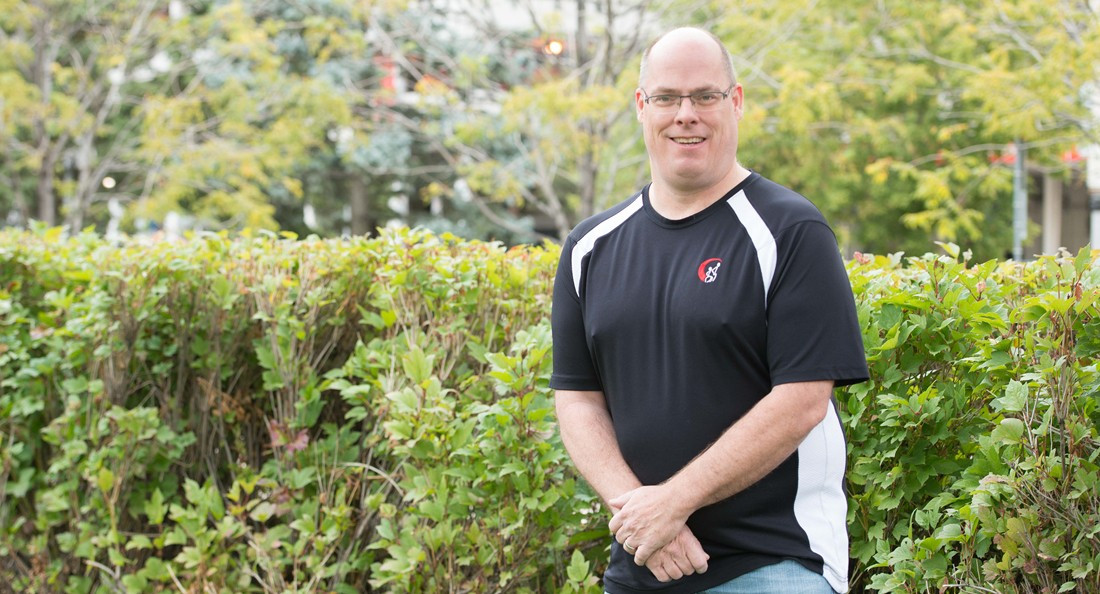Negotiating for quality of life
Locked Out of Life campaign focuses on human rights complaint and mediation
For Tyson Sylvester and Amy Hampton, who both have cerebral palsy (CP), two years of work fighting for their rights to the support systems necessary for them to participate in society are on the brink of paying off.
CP refers to a variety of birth conditions caused by damage to or abnormal development of the parts of the brain that control body movement and muscle co-ordination. It does not affect cognitive development or alter life expectancy but can affect speech and movement.
David Kron, executive director of the Cerebral Palsy Association of Manitoba (CPAM), says the supports available to minors with physical disabilities are quite good, even if they aren’t perfect, but those services disappear once a person turns 18.
“It’s almost that you’re cured at the age of 18, as far as government services go,” Kron says.
Sylvester and Hampton filed a complaint with the Manitoba Human Rights Commission (MHRC) on the basis of age discrimination and ableism in the Provincial Government of Manitoba and Winnipeg Regional Health Authority’s distribution of supports to people with physical disabilities.
When Sylvester and Hampton originally made their complaint in July of 2016, the provincial government declared it “frivolous and vexatious,” but an investigation found that there were grounds to the complaint and recommended that the parties go through mediation. If any party declines, the case will go to a hearing.
To raise awareness about the lack of services provided to adults with physical disabilities, Tyson and Amy have worked with CPAM to create the Locked Out of Life campaign.
Kron says since the campaign launch, “I’ve certainly had more calls to the office from individuals with and without CP that say, ‘Yes, you’re right, we need to move forward.’”
Because the complaint focuses on a systemic problem, Joëlle Pastora Sala, Sylvester and Hampton’s lawyer, says the outcome will not just serve her clients, but all adults with physical disabilities who need additional services.
“We wanted to shed a light on the opportunities missed or the opportunities lost for our members with CP,” Kron says. “But it’s also other folks with disabilities, whether its muscular dystrophy or MS or just the lack of services for adults in Manitoba.”
Sala says lack of services is likely due to the fact that “the government is reluctant, often, to create new programs and to provide additional services and supports to persons with disabilities.”
While many people with physical disabilities do not need extensive care, they may still need more than is offered. For example, Kron says “for a small number of my folks with (CP), you can’t leave them alone; they cant open a door if there’s a fire, they can’t change the channel ... Cognitively, they’re fine, but physically, they’re unable to do those simple daily tasks.”
Sala says that there are two options for adults with physical disabilities in need of assistance: homecare, which provides basic medical services and is capped at 55 hours per week; and a personal care home for those who need more hours of care.
Personal care homes largely cater to seniors, “so for individuals who are young, like my clients Tyson and Amy, that’s completely inappropriate ... and that takes away their quality of life and excludes them from society,” Sala says.
“My clients were pleased that (MHRC) did recommend to go to mediation, because we hope to have non-adversarial conversations with the Province of Manitoba,” Sala says. “Essentially, now the ball is in their court to decide if they want to have those conversations with us outside of the formal human rights process and ... if they don’t want to mediate with my clients, then we would go to the hearing.”
Sala says that the team’s goal for mediation is threefold: that the services provided to children with physical disabilities are continued through adulthood; services are distributed transparently and according to need; and the approach is made in Manitoba, allowing adults with physical disabilities to contribute to their province.
To learn more about the Locked Out of Life campaign, visit lockedoutoflife.com/#about-the-campaign.
Published in Volume 73, Number 4 of The Uniter (September 27, 2018)







